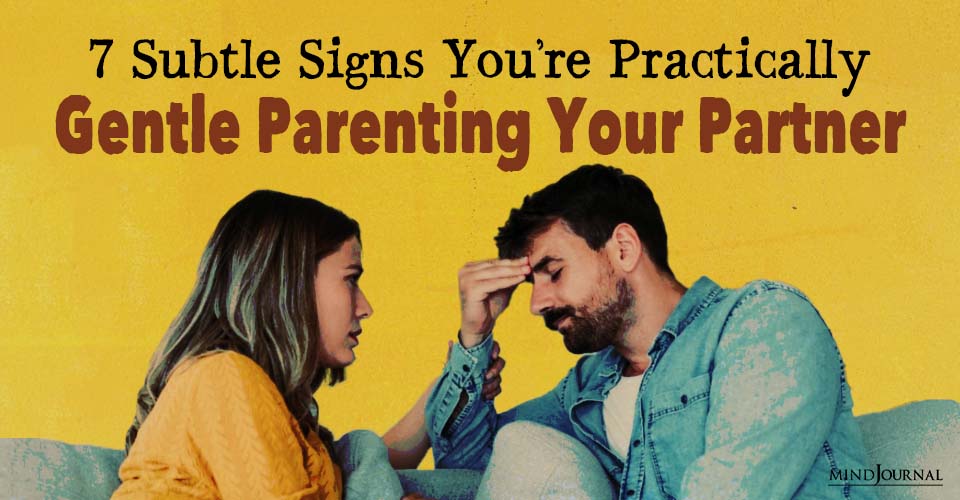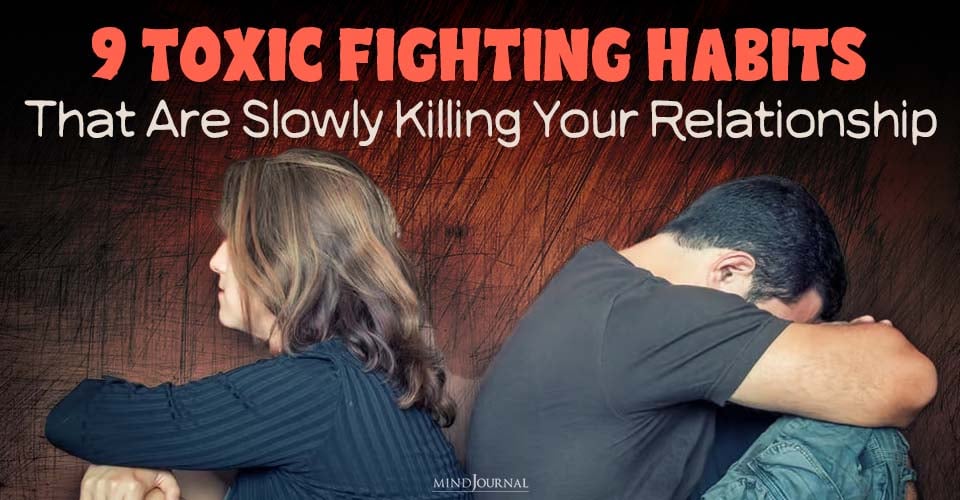Do you find yourself in a relationship where you feel less like you’re with a partner and more like you’re raising a child? Constantly teaching, guiding, and hand-holding can be draining, especially when you’re the one doing all the emotional labor, and parenting your partner.
If this sounds familiar, below are the signs you might be shouldering too much and why it’s time to rethink this relationship.

Read More Here: 5 Unrealistic Expectations In A Relationship That Can Destroy Love
7 Signs You Are Parenting Your Partner
1. You’re Constantly Over-Explaining Simple Things
Ever find yourself breaking down complex situations into the simplest terms, like you’re explaining to a child? You might be repeating yourself over and over or trying to make sure your partner understands the basics of something they should already know.
It’s draining to feel like you have to simplify everything, especially when you just want someone to get it without needing a step-by-step guide.
2. Their Emotions Always Come First (Even When Yours Don’t)
In many relationships, emotional balance is key. But if you’re always prioritizing their feelings, even at the cost of your own, you’re probably overcompensating for what they lack emotionally.
Maybe they can’t express themselves well, so you’re constantly walking on eggshells, trying to keep them happy while neglecting your own emotional needs. It’s exhausting to always be the one managing the mood of the relationship.
3. You’re Constantly Seeking Reassurance
If you’re always looking for signs that everything is okay in the relationship, even when there’s nothing to worry about, it can feel like you’re trying to constantly validate them.
You might be asking, “Are you okay?” or “Do you need anything?” more than you’d like to admit, even when they haven’t expressed any concerns. This unnecessary reassurance-seeking becomes a never-ending loop, and it’s tiring to always play the role of the emotional caretaker.
4. You’re Micromanaging Their Choices
Does it feel like you’re always giving advice on the smallest decisions? “You should eat this for lunch,” “Maybe you should wear that,” or “Did you think about this option?”
While it’s nice to want to help, constantly micromanaging your partner’s every move can be exhausting. It’s like you’re not just in a relationship, you’re managing someone’s life, and that can take a toll on your patience and energy.
5. You’re Always the One Fixing Their Problems
Instead of letting your partner handle things on their own, you swoop in to “fix” everything. Whether it’s a work issue, family drama, or a broken appliance, you always feel like you need to solve their problems.
The issue here isn’t that you’re being helpful, but rather that you’re not allowing them to step up and handle their own responsibilities. Over time, this dynamic can make you feel like a parent rather than an equal partner.
6. You’re Offering Excessive Praise and Reinforcement
Sure, everyone loves a compliment, but when you find yourself constantly praising every little thing they do, whether it’s making the bed or ordering take-out, there’s a chance you’re overcompensating for what they lack in self-esteem or independence.
While it’s great to encourage your partner, the need to constantly boost their confidence can feel more like you’re raising a child, not building a relationship with an equal.
7. You Feel Drained and Resentful
At the end of the day, you might be feeling physically and emotionally drained. Instead of feeling like you’ve had a rewarding day with a supportive partner, you’re left feeling like you’ve been running a daycare.
If you’re doing all the emotional labor, taking care of their needs, and managing everything, it’s no wonder you’re exhausted. A relationship should be about partnership, not one-sided parenting.
How To Stop Parenting Your Partner
If you find yourself gentle parenting your partner, here’s how to stop parenting your partner:
1. Recognize the Signs
Identify when you’re overstepping and taking on the parent role.
2. Set Boundaries
Clearly define what you’re willing to handle and what’s their responsibility.
3. Stop Over-Explaining
Trust your partner’s ability to understand without needing to break everything down.
5. Let Go of “Fixing”
Stop solving their problems. Let them learn and grow on their own.
6. Focus on Equal Partnership
Work together as equals, sharing emotional and practical responsibilities.
8. Make Time for Yourself
Prioritize self-care and recharge to keep the relationship healthy.
Read More Here: Othello Syndrome: 7 Signs of Extreme Jealousy In A Relationship
It’ll take time for you to step out of the “parent” role and lead a more equal relationship. But don’t lose hope! Take your time to understand your partner well.
Share your thoughts and feelings if you’re also constantly parenting your partner!










Leave a Reply